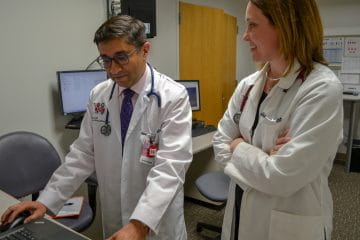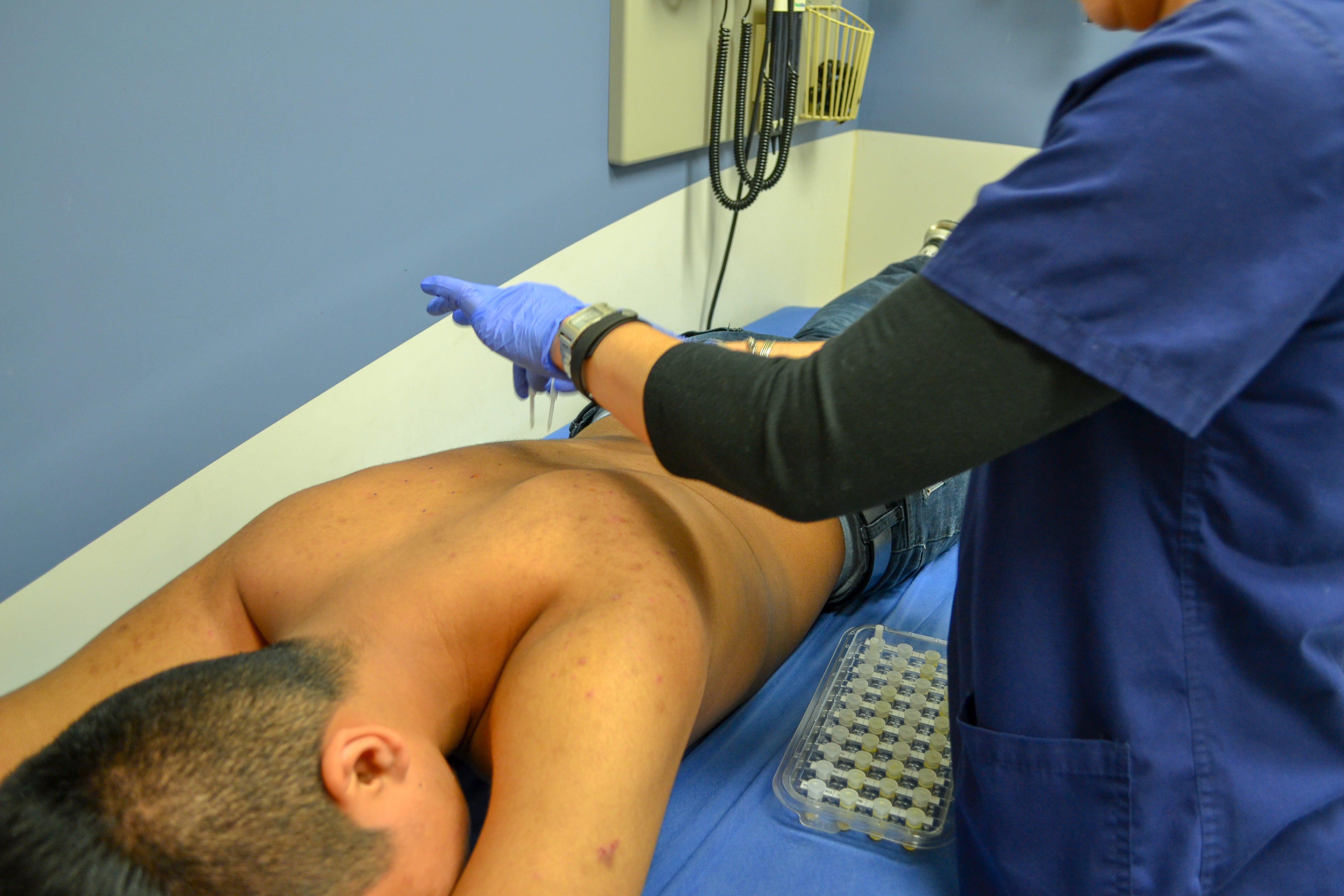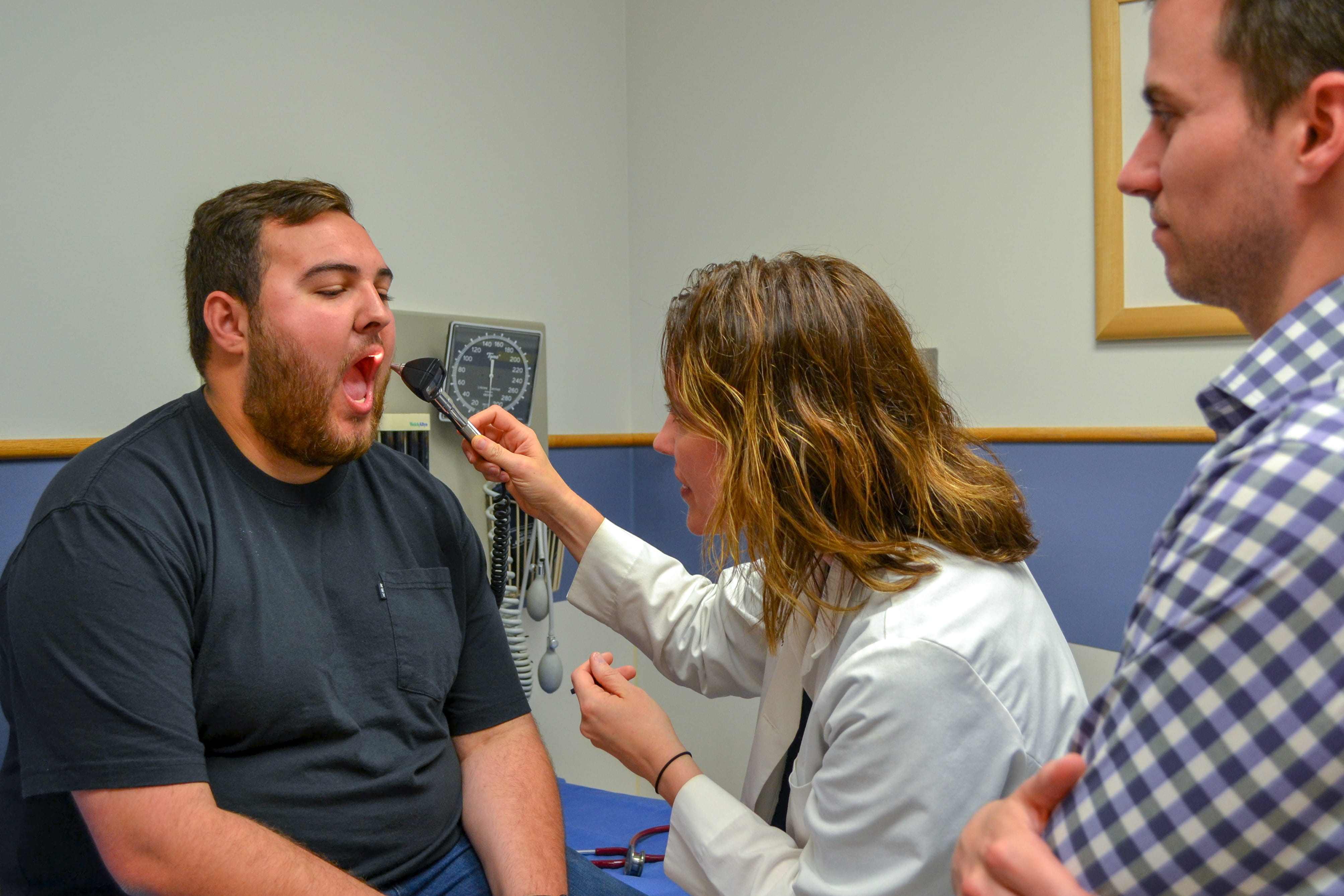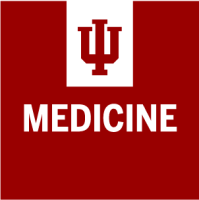The IU School of Medicine Allergy/ Immunology Fellowship is an ACGME-accredited two-year program that prepares physicians in the expert care and management of allergy and immunology issues for both children and adults. Allergy/immunology fellows acquire a wide range of clinical and research experiences and are prepared for academic careers as a physician-scientist or clinician-educator. The fellowship produces specialists who excel in patient care skills and diagnostic acumen and who know how to analyze and apply research. On completion of the fellowship, the physician is eligible to sit for the board certification exam of the American Board of Allergy and Immunology.
The Allergy/Immunology Fellowship program is based in the Division of Pediatric Pulmonology, Allergy, and Sleep Medicine, at Riley Hospital for Children.
Clinical and Didactic Experience
- Pediatric and adult care experiences in academic, suburban, community and research settings
- Training in an array of allergy procedures, including skin prick and intradermal testing, allergen immunotherapy initiation and management, food and drug challenges, immunoglobulin treatment, pulmonary function testing, insect sting testing and use of immune-modulatory therapies
- Multidisciplinary high-risk asthma and gastrointestinal eosinophilic digestive diseases clinics
- Fellows' continuity clinics
- Assessment and care of positive newborn SCIDs screens
- Over 200 outpatient food challenges per year at a FARE Center of Clinical Excellence
- Drug allergy de-labeling programs, in- and out-patient
- Weekly didactic sessions with faculty using allergy and immunology texts and reviews
- Journal clubs, case conferences, safety sessions and quality improvement initiatives
- Additional training pathways such as the Clinician-Educator Training Pathway or Global Health Pathway
- Morris Green Scholars Program











